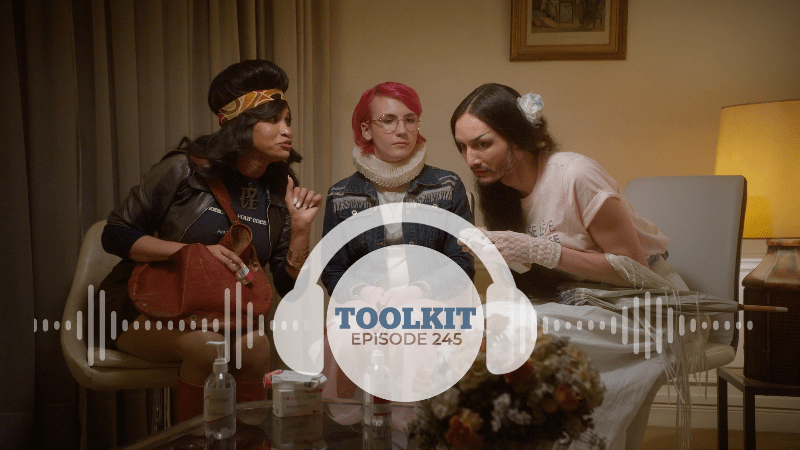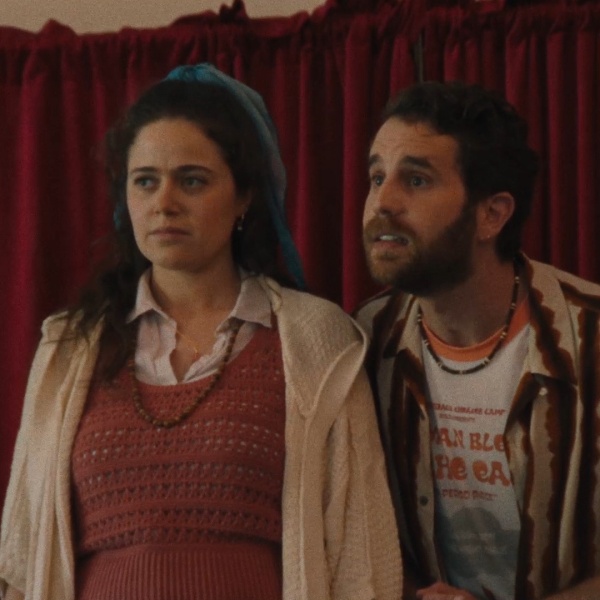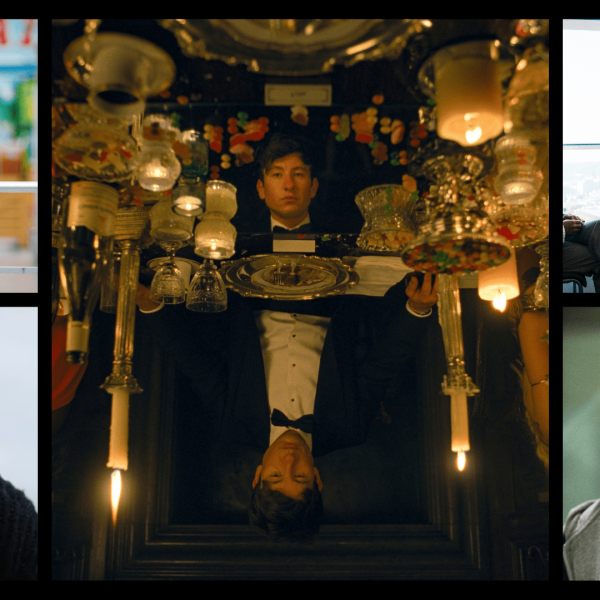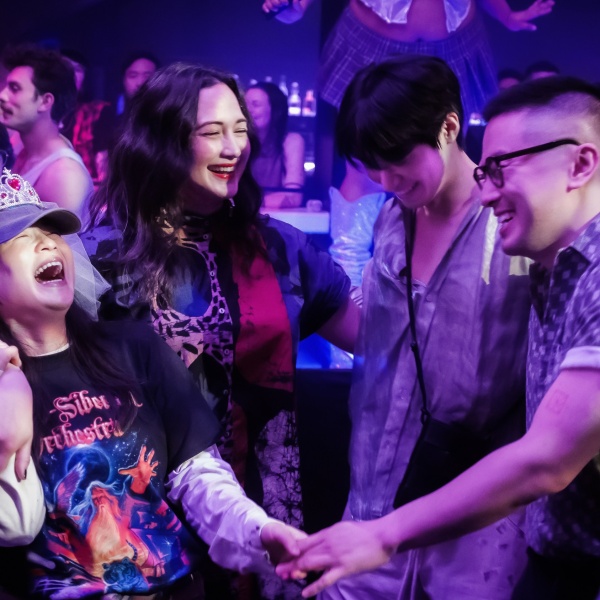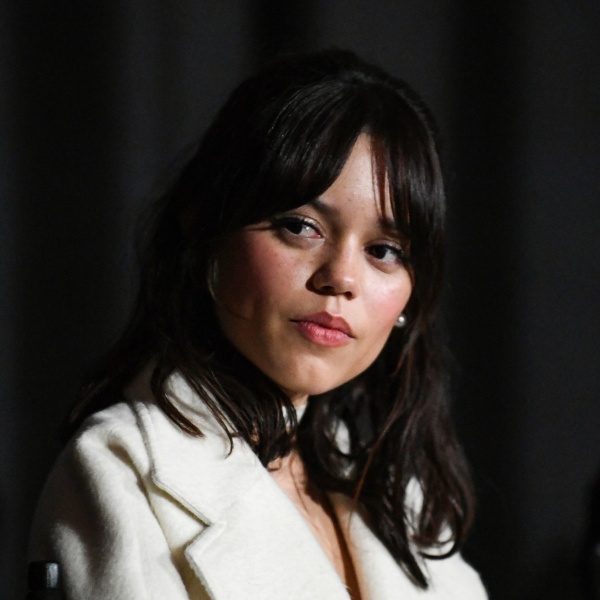Paul B. Preciado comes from the world of philosophy, not filmmaking. When he was approached by a studio about creating a biography of his life — from his work on identity and art to his own “slow transition” — it was merely as the subject of a potential film. Preciado instinctively knew his story wasn’t just the things that had happened to him or the work he’d done. His story is “Orlando,” by Virginia Woolf, both the ideas present in the 1928 novel and what the experience of reading it has done for young queer people. In “Orlando, My Political Biography” Preciado tells the story of the novel while reflecting on the lived experience of trans and genderfluid folks from the mid-20th century to the present day. But he doesn’t do that alone, either.
The film begins with Preciado searching for collaborators, putting up posters all over Paris that ask, “Oú est Orlando?” It turns out these sequences aren’t just a framing device but a reflection of Preciado’s approach to filmmaking itself. In order to realize his idea of “a documentary adaptation of ‘Orlando,’ by Virginia Woolf,” he was going to need to find other people who, like him, saw themselves and their struggles in the novel’s protagonist.
Preciado ended up finding over 100 Orlandos, 26 of whom appear in the final film. “People would say, ‘I am Orlando.’ Someone else would come and would say, ‘No, no, no, no, I am Orlando. And I want to tell you why.’ That was amazing for me because it made me really think and believe that the film was possible,” Preciado told IndieWire’s Filmmaker Toolkit podcast.
There couldn’t be only one Orlando in the film or only one way of relating to the novel dramatized in Preciado’s movie, so he ended up working with 30 of the Orlandos, running workshops that were less like rehearsal and more like a philosophy or literature class. “My producers were always telling me, ‘This is not the way we do things; we don’t understand what you’re doing.’ I was working using methodologies that are coming from activism, that are coming from philosophy: like really working with the text and seeing what is happening in the text that might speak to you and that you want to relate to with your own biography.”
It was this workshopping that contributed to one of the most exciting aspects of the film: “Orlando, My Political Biography” weaves between the story of Virginia Woolf’s Orlando and each of the Orlandos in the film’s story of self-discovery. Some of that comes from the rehearsal and deep thought about the language of the text, so that the film’s Orlandos can move effortlessly from quoting the novel to talking about their own lives. Some of it comes from collaborating with a group of people who can speak the same language.
“It was crucial to work with my cinematographer, Victor Sebo, who’s an amazing director of photography, and important for me that everyone would come from the queer/non-binary/trans community; so I wouldn’t have to explain how I wanted the camera to look at people,” Preciado said. “[I had started working with] a cinematographer who would ask me all the time, ‘But is this a man or a woman?’ It’s such an obvious question for everyone; everyone wants to know if this is a man or a woman before even approaching them or filming them. And I was like, ‘Well, this is exactly the object of this film. This is exactly why I’m making this film: For you to forget at a certain moment, this insidious, violent question of “Are you a man or a woman,” right?’ At a certain moment, you’re getting into this Orlando mood that hopefully will affect yourself as well.”
Creating an Orlando cinematic gaze, as it were, was part of how Preciado staged interviews with his subjects and their embodiment of scenes from the Woolf novel. The camera always shows us the act of putting on the Elizabethan ruff and the make-up that marks someone as Orlando, as well as the construction of the sets.
In one moving sequence of Orlando (Ruben Rizza) meeting Sasha (Castiel Emery) in the Russian snow, Preciado was excited by the idea of showing fake snow, the scrim that creates a forest backdrop, and the inflatable pool the performers stood in.
“I wanted people to see the device of making the snow in a film. But I also wanted them to realize that no matter how artificial that is, the moment it falls down on people, you will have this emotion, right? Because that is exactly how gender is constructed,” Preciado said. “No matter how fake it is, once you are in [a gender role], you have this feeling of naturalness and emotion.”
That sense of constructed reality is all over “Orlando, My Political Biography,” from the romance of that scene in the snow to the much more political awareness of an Orlando (Jenny Bel’Air) denied a room at a hotel because they do not have a passport that conforms with their gender identity. It also allows the documentary to end on a note of hope, with Preciado staging a ceremony in which all the Orlandos are given the documents that will unlock for them the same community rights cisgender folks take for granted. And that ending, too, was not something that Preciado had written but that arose from working with the Orlandos.
“I realized that many of them, I’m not going to say all of them — I do have papers, for instance — but many of them didn’t have documents and therefore many of them [can’t] go to school, they don’t have access to housing, they have very poor and difficult access to public health. They cannot cross borders. In a nutshell, they are not political subjects of a territory anymore,” Preciado said. But passports are as much a book as Virginia Woolf’s “Orlando,” and equally constructed. Preciado lighted on the idea of giving one book to the characters that had stepped out of the other.
“The fictional dimension of our documents was super important. And then it became this political ritual of healing, and almost like repairing collectively something that has been broken and damaged for all of us,” Preciado said.
